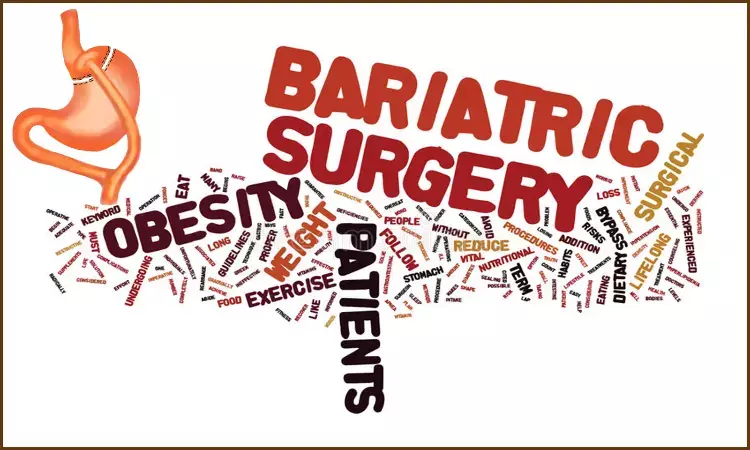- Home
- Medical news & Guidelines
- Anesthesiology
- Cardiology and CTVS
- Critical Care
- Dentistry
- Dermatology
- Diabetes and Endocrinology
- ENT
- Gastroenterology
- Medicine
- Nephrology
- Neurology
- Obstretics-Gynaecology
- Oncology
- Ophthalmology
- Orthopaedics
- Pediatrics-Neonatology
- Psychiatry
- Pulmonology
- Radiology
- Surgery
- Urology
- Laboratory Medicine
- Diet
- Nursing
- Paramedical
- Physiotherapy
- Health news
- Fact Check
- Bone Health Fact Check
- Brain Health Fact Check
- Cancer Related Fact Check
- Child Care Fact Check
- Dental and oral health fact check
- Diabetes and metabolic health fact check
- Diet and Nutrition Fact Check
- Eye and ENT Care Fact Check
- Fitness fact check
- Gut health fact check
- Heart health fact check
- Kidney health fact check
- Medical education fact check
- Men's health fact check
- Respiratory fact check
- Skin and hair care fact check
- Vaccine and Immunization fact check
- Women's health fact check
- AYUSH
- State News
- Andaman and Nicobar Islands
- Andhra Pradesh
- Arunachal Pradesh
- Assam
- Bihar
- Chandigarh
- Chattisgarh
- Dadra and Nagar Haveli
- Daman and Diu
- Delhi
- Goa
- Gujarat
- Haryana
- Himachal Pradesh
- Jammu & Kashmir
- Jharkhand
- Karnataka
- Kerala
- Ladakh
- Lakshadweep
- Madhya Pradesh
- Maharashtra
- Manipur
- Meghalaya
- Mizoram
- Nagaland
- Odisha
- Puducherry
- Punjab
- Rajasthan
- Sikkim
- Tamil Nadu
- Telangana
- Tripura
- Uttar Pradesh
- Uttrakhand
- West Bengal
- Medical Education
- Industry
Endoscopic sleeve gastroplasty provides better weight reduction than intragastric balloon

A new study by K. Kozlowska-Petriczko and team found that compared to Intragastric balloon (IGB) installation, endoscopic sleeve gastroplasty (ESG) resulted in more weight reduction. The findings of this study were published in Obesity Surgery Journal.
Overweight and obesity are presently a significant worldwide public health burden. Their global prevalence is substantial and steadily increasing, with an estimated 39% adult global population. Although lifestyle adjustments, medication, and food are readily accessible, they appear to be insufficient for the vast majority of patients. In 50% of instances, a 5-10% total body weight reduction (TBWL) can be accomplished with strong patient participation. Weight loss procedures such as intragastric balloon insertion and endoscopic sleeve gastroplasty are proven to be effective and safe. As a result, the purpose of this study was to examine the effects of 6-month IGB therapy, 12-month IGB therapy, and ESG.
Weight loss at 6 months after IGB (Orbera) removal (124 patients), 12 months after IGB (Orbera365) removal (61 patients), and 6 and 12 months following ESG (42 and 34 patients, respectively) were retrospectively examined for this study. Postprocedural care, including prescription and food, was ensured to be consistent throughout all surgeries.
The key findings of this study were:
Patients receiving IGB implantation for 6 and 12 months, as well as ESG after 6 and 12 months, had mean TBWLs of 15.2, 15.8, 26.5, and 28.7 kg, respectively.
There was no statistically significant difference in mean%TBWL between patients who had IGB placement for 6 or 12 months (15.3% vs. 14.7%, P = 0.7).
After 6 months (15.3 vs. 19.8, P = 0.005) and 12 months (14.7 vs. 22.5, P = 0.001), ESG patients had substantially higher mean%TBWL than IGB patients.
In conclusion, all three strategies investigated were beneficial for weight reduction. There was no significant difference in results between 6-month and 12-month IGB treatments. ESG showed to be a more effective therapy strategy for obesity than IGB.
Reference:
Kozłowska-Petriczko, K., Pawlak, K. M., Wojciechowska, K., Reiter, A., Błaszczyk, Ł., Szełemej, J., Petriczko, J., & Wiechowska-Kozłowska, A. (2022). The Efficacy Comparison of Endoscopic Bariatric Therapies: 6-Month Versus 12-Month Intragastric Balloon Versus Endoscopic Sleeve Gastroplasty. In Obesity Surgery. Springer Science and Business Media LLC. https://doi.org/10.1007/s11695-022-06398-x
Neuroscience Masters graduate
Jacinthlyn Sylvia, a Neuroscience Master's graduate from Chennai has worked extensively in deciphering the neurobiology of cognition and motor control in aging. She also has spread-out exposure to Neurosurgery from her Bachelor’s. She is currently involved in active Neuro-Oncology research. She is an upcoming neuroscientist with a fiery passion for writing. Her news cover at Medical Dialogues feature recent discoveries and updates from the healthcare and biomedical research fields. She can be reached at editorial@medicaldialogues.in
Dr Kamal Kant Kohli-MBBS, DTCD- a chest specialist with more than 30 years of practice and a flair for writing clinical articles, Dr Kamal Kant Kohli joined Medical Dialogues as a Chief Editor of Medical News. Besides writing articles, as an editor, he proofreads and verifies all the medical content published on Medical Dialogues including those coming from journals, studies,medical conferences,guidelines etc. Email: drkohli@medicaldialogues.in. Contact no. 011-43720751


